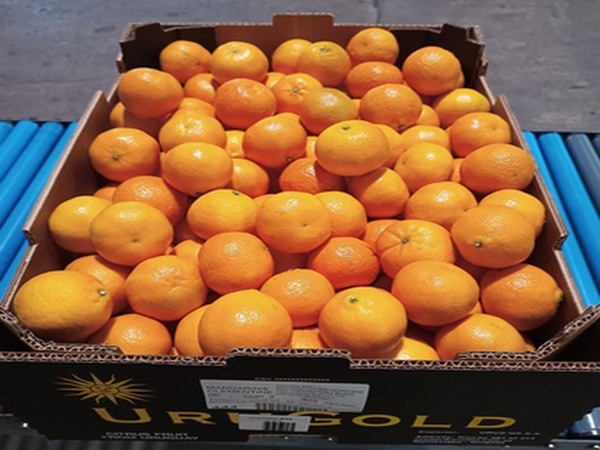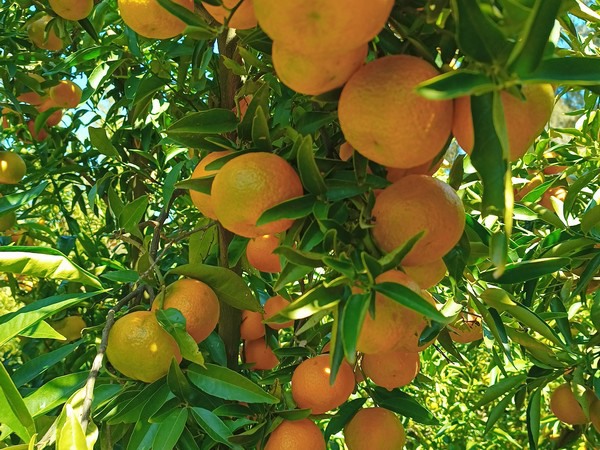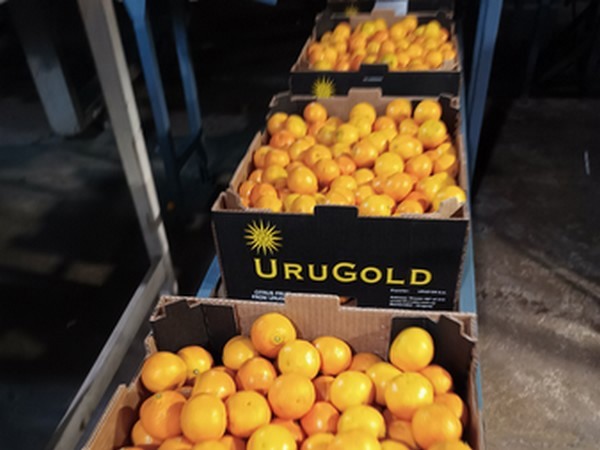The citrus sector in Uruguay is buoyed by new investors who are expanding or simply renewing orchards with the latest cultivars. This allows the leading exported fresh fruit commodity in Uruguay to start capitalizing on their counter season offering in existing and new markets. Producers hope the new mandarins, oranges and lemons will have a positive impact on their volumes and quality exported, particularly to their main market in the USA, as well as secondary markets in Europe and the Middle East.

Marta Bentancur, from the Union of Fruit Producers and Exporters of Uruguay (UPEFRUY) states, “On the one hand, new varieties in mandarins but also in oranges and seedless lemons have been one of the most important issues in the last years. In the case of mandarins and also oranges, the focus was on new varieties, including domestically developed cultivars that were made available to the local producers after many years of research. These varieties were developed for good taste, better colour attributes, longer shelf life, while we are also trying to fill gaps during the season when our competitors are not in the market.”
Citrus is Uruguay’s main export fruit with sales in the international market reaching 100 000 tons per year. Uruguay is one of South America’s biggest citrus exporters and one of the twenty largest in the world. The citrus season starts with Satsumas in March and ends with lemons and late Valencia’s in November each year. It has a total area of 15 000 hectares with a production of over 300 000 tons. Easy peelers (mandarins) are 28%, oranges another 27% while lemons make up the majority of volumes.
Uruguay’s main markets are Europe, America (the USA, Brazil and Canada) with very small amounts sent to Asia. Production centers mainly on the northern seaboard of the Uruguay River, but is also found in various southern Departments. Uruguay’s counter-season production is a key differential, offering produce with high quality pulp, taste and color at a time of the year when the biggest markets of the Northern Hemisphere are not producing.
“On the other hand, the presence of new investors, from Argentina, Peru and USA, is showing that Uruguay is a good place to work and invest. Natural resources such as water and good soils and climate have supported other extra possible causes of new companies to come to Uruguay. We have the compromise to work under sustainable practices in environmental areas but also the outstanding legal framework for our people and our communities,” states Bentancur.
“Our export tradition as a top 10 Southern Hemisphere supplier is bigger than our size, while we have as a country been exporting for more than 50 years. This year we are starting a very difficult export season, with very good quality and sizes for mandarins and navels. In fact, easy peelers, exported mostly to USA, have shown good presence in the market. It is too early in the season to predict how our lemons and oranges will do. Since we gained market access in the USA in 2014 our exports grew from less than 5 000 tons in 2014 to 25 500 tons in 2022 of a total of 40 000 tons exported to the region.”

“In lemons, of a total of 78 000 tons, only 20 000 are exported fresh with 40 000 going to industry, considering the new 1 000 hectares invested by San Miguel global. For the 2022 season, our first estimate was 15 % higher than the 104 000 tons of 2021 for total exports. We estimate to reach around 118 000 tons, but it is probable that some varieties will not be able to achieve sustainable prices in this globally uncertain environment. The increase in costs, already voiced globally, is highly important for medium sized growers and exporters particularly in respect to logistics.
As it is happening in other places, the higher costs are accompanied by a lack of containers and delayed vessels arriving to our ports. Delays not only affect our clients programs but go against the quality of perishable product coming to the table of consumers in long distance markets in the Northern Hemisphere. By now at the start of the season, we can say that we are not having great issues with availability for the first time of the season, but again, final results will depend on logistics costs and commercial issues,” explains a concerned Bentancur.
New markets needed
The new investments and expansion of orchards means existing markets have to be developed sooner. “Obtaining access to new markets are key for Uruguay and we are working on this along with our official institutions. A sound and responsible program has been developed in order to assure that our fruit fully complies with requirements and this is also supported by an outstanding traceability system,” said Bentancur.
Uruguay does not export easy peelers to the UK anymore due to unaffordable tariffs as high as 16% since 2014 when the SGP (system generale de preferences) came to an end . She said Russia, Ukraine and Belarus are options this season but; “We need real time to be able to fulfill our expectations in that region. Plans to revive and increase markets in Asia are receiving new attention but logistical costs does not make it viable most of the time. "For instance we have not been able to develop the China market, already open for oranges and easy peelers, as much as we had planned. This is due to logistics problems, logistic costs, lack of availability of containers and ships and particularly transit times that were worsened by the pandemic.”

Bentancur notes a concerted effort will be made by the Uruguayan citrus industry to overcome these challenges and make Asian markets more attractive. “We are fully committed to open India, Philippines and Vietnam by now. We want to keep growing in the USA, Brasil and Europe, where we find excellent opportunities for market windows with high quality, better colour and tasty varieties."
"Competence is hard and the costs equation has to be reviewed permanently to be able to play in the international arena. In this, we certainly know that besides good varieties, we have to be better every day by taking care of the technology package supporting sustainable production, taking care of our environment and people and communities supported by the citrus production, which today has more than 25 000 workers. In this respect we want to move forward to measure our practices through transparent methodology and thus, being sure we are working for our future generations,” concluded Bentancur.
For more information:
Marta Bentancur
UPEFRUY
Tel: +598 2916 0635
Email: [email protected]
www.uruguayfruits.com.uy
